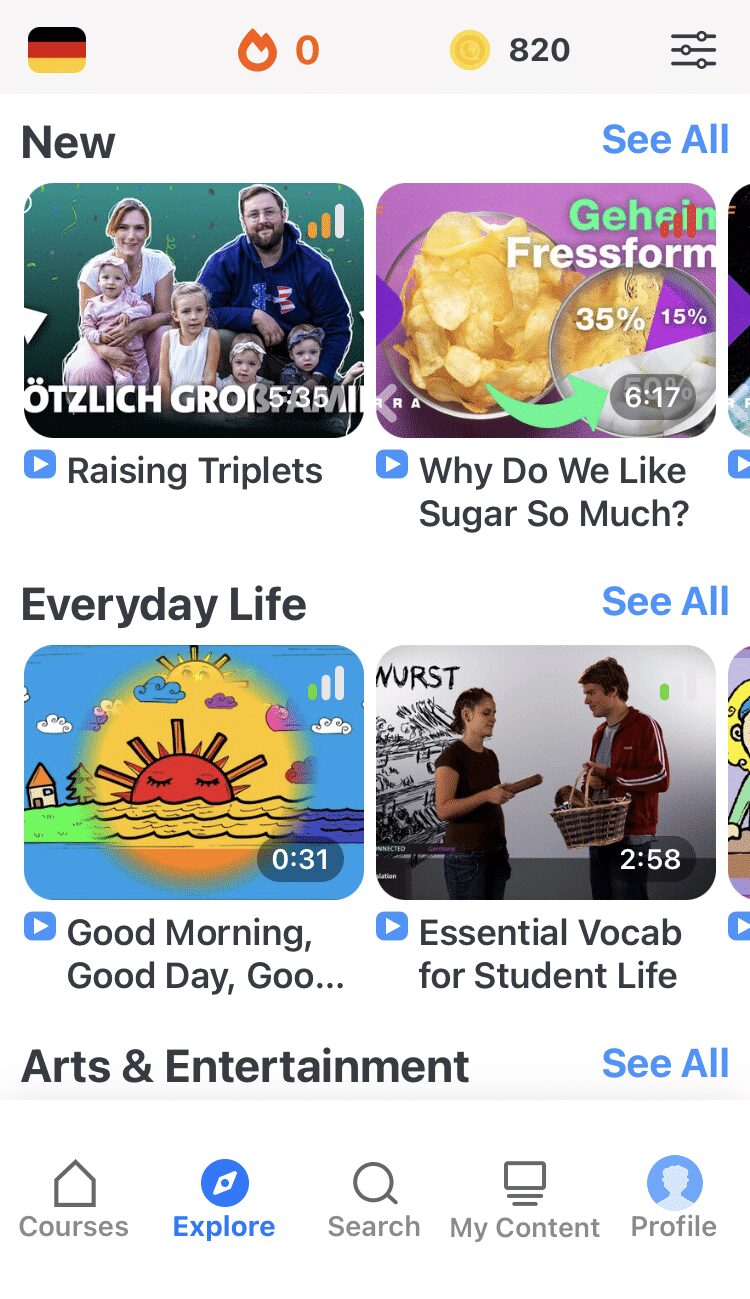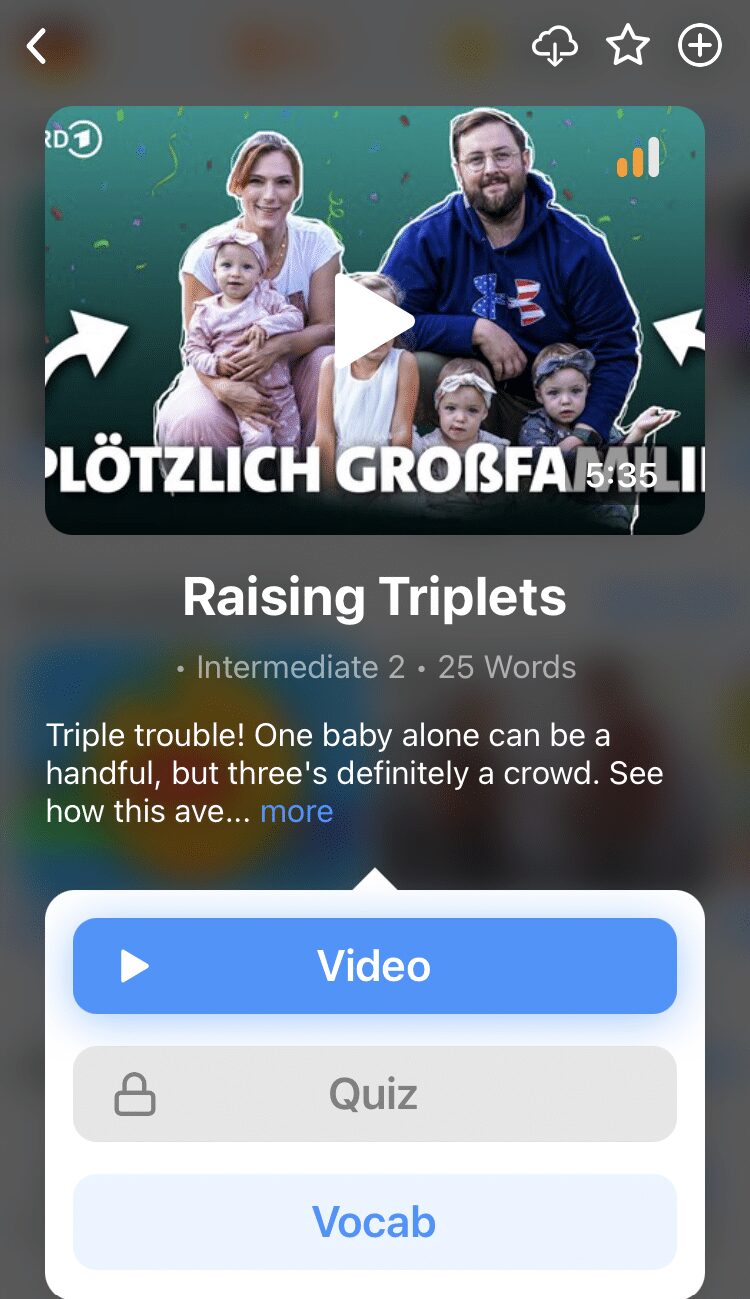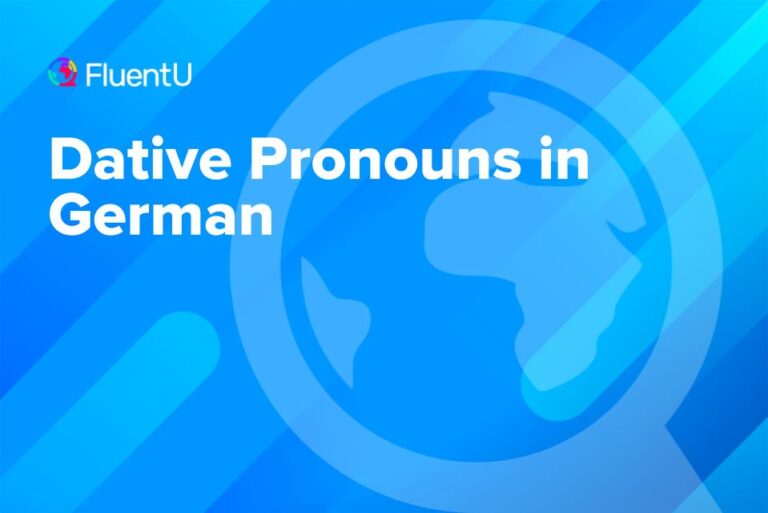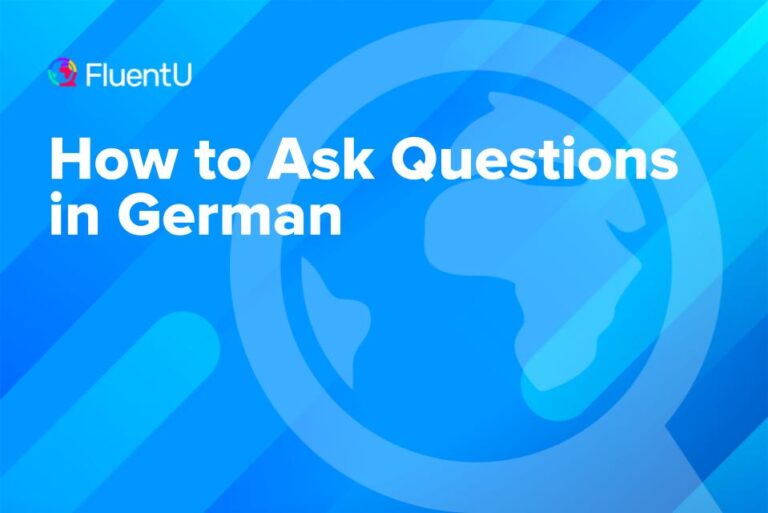Months in German

There are many reasons why learning the months in German will benefit you in the long run. Luckily, many of the German months sound similar to English, which makes them easy to learn.
In this blog post, I’ll teach you how to talk about the months in German, how to pronounce them, tips for studying them and special vocabulary you’ll use a lot during each one.
Download: This blog post is available as a convenient and portable PDF that you can take anywhere. Click here to get a copy. (Download)
Months in German
Here’s a quick overview of the names for the months in German:
| German | English |
|---|---|
| Januar | January |
| Februar | February |
| März | March |
| April | April |
| Mai | May |
| Juni | June |
| Juli | July |
| August | August |
| September | September |
| Oktober | October |
| November | November |
| Dezember | December |
And to find out more about how the months work in German, just keep reading!
Januar (January)
The first month of the year, Januar, teaches you two important pronunciation lessons. First of all, the letter j (sounds similar to the word “yacht”) is always pronounced with a “yuh” sound in German.
The “uar” combination is also a great one to learn here. Any German word with this vowel combination will be pronounced this way.
Some great related words to learn here are Winter (winter), kalt (cold) and Schneemann (Snowman).
Februar (February)
Like Januar, Februar is another great example of the “uar” vowel combination.
For this month, why not learn some more frostig (frosty) vocabulary, like Schneesturm (snowstorm) and Eissturm (ice storm)?
Some February-only German words include Valentinstag (Valentine’s Day) and Schaltjahr (Leap Year).
März (March)
We’re getting into umlaut territory with the German month März.
These pesky little double dots above vowels are always challenging for English speakers to pronounce. You can learn more on how to pronounce them with this video.
But luckily, their pronunciation also stays the same no matter what the word, so what it really comes down to is practice, practice, practice.
Some great March-related German vocabulary to learn include Frühling (spring), Tulpen (tulip) and Vogelgesang (bird song).
April (April)
Be careful with this one. Although this month is written the same as the English word, the pronunciation and word stress is different in German.
Some April (and sometimes March) vocabulary include Ostern (Easter), Osterhase (Easter bunny) and Karfreitag (Good Friday).
April is notorious for being the month of unpredictable weather, with t-shirt weather one year and a chilly cold front the next.
Thanks to this temperamental weather spirit, Germans have a saying about the month: “April, April, der macht was er will” (April, April it does whatever it wants), which they like to say while shaking their heads and staring moodily out the window at a late-season April snowstorm.
Mai (May)
Think “Why not sip a Mai Tai in Mai?” and you’ll instantly have the right pronunciation for this German month. The “ai” vowel combination is also a good one to learn here.
Mai is (usually) chock-full of Sonnenschein (sunshine) as well as a number of holidays, including 1 Mai / Tag der Arbeit (May 1st / Labor Day) and Muttertag (Mother’s Day) and Vatertag (Father’s Day).
Fun fact: Muttertag is basically celebrated the same way as Mother’s Day in the United States, but Vatertag involves a lot more alcohol and even wagon pulling in some parts of Germany.
Juni (June)
The next two summer months give us another great pronunciation example of the German “j” and “ju” letter combination (which sounds like the English word “you”).
These Monate (months, singular: Monat ) are in the Sommer (summer), when many Germans spend the day at the Strand (beach) in their Badeanzug (bathing suit), or sometimes Freikörperkultur (FKK), which means hanging out in the sun in nothing but your birthday suit.
Birthday suit is Adamskostüm if you’re a Typ (guy) and Evakostüm if you’re a Mädel (gal), which literally means Adam and Eve costumes!
Juli (July)
Juni and Juli look and sound alike in German, but make sure you don’t mix them up!
In this mid-summer month, most Germans love nothing more than grillen (barbecuing) and chillen im Park (hanging out at a park). And for Nachtisch (dessert)? zur Eisdiele, natürlich! (Off to the ice cream parlor, of course)
August (August)
Like April, this German month is written the same as the English word, but it has different word stress and pronunciation, so watch out!
Since August is usually the hottest month as well as the end of summer, some great German words to learn are Hitzewelle (heatwave), Urlaub (vacation) and Schulanfang (back to school).
September (September)
Except for the “k” in Oktober and the “z” in Dezember, the next four months are written the same in German as they are in English, and the pronunciation is also similar.
However, the vowel sounds are softer, and they give you a preview for the German “r,” which is also challenging for English speakers to pronounce.
In other words, don’t slack off on learning to pronounce these words correctly! In the video below, you can see how the German “r” is pronounced differently depending on where it is in the word.
Some great related German vocabulary for September include Herbst (fall), Altweibersommer (Indian summer) and bunte Herbstblätter (colorful fall leaves).
Oktober (October)
The German words you should learn for this month are a no-brainer: Oktoberfest (October Fest), Bier (beer) and Brezeln (pretzels).
But let’s learn a little culture here, too!
Oktoberfest is not originally a German-wide phenomenon. Instead, it’s really only traditionally celebrated in München (Munich), which is in the German state Bayern (Bavaria).
In a nutshell, if you want to celebrate this festival in Germany, don’t head for Berlin or Hamburg. Although these cities may still have a small set up of Oktoberfest tents somewhere in the city, they’ll be inauthentic and geared more towards Touristen (tourists).
November (November)
November tends to be a very wet month, so make sure you learn the word Regen (rain). For a bit of German culture, learn about Laternenfest (lantern festival), a children’s holiday in honor of Saint Martin, and Allerheiligen (All Saints Day).
Dezember (December)
The German month Dezember is a perfect example of the German pronunciation of the letter “z,” which you’ll need to practice plenty in the future.
Some great related words for this month are holiday ones, like Weihnachten (Christmas), Heiligabend (Christmas Eve) and Geschenke (presents).
Christmas is celebrated in a similar way in Germany, although there are noted differences. For example, the Geschenke are always opened on Heiligabend and some people still use real Kerzen (candles) on their Weihnachtsbaum (Christmas tree)!
Another great phrase to learn is zwischen den Jahren . Literally translated as “between the years,” this phrase describes the week between Christmas and Silvester (New Year’s Eve).
Many offices are closed during this time, which makes it one of the most relaxing times of the year when people focus more on family and eating holiday treats than work.
FAQ About the Months in German
Do you put the month or day first in German?
In German, the day is always put before the month. For example, der fünfte Januar (the fifth of January) follows this format.
What are the seasons in German?
The seasons in German are Frühling (spring), Sommer (summer), Herbst (autumn/fall), and Winter (winter).
If you want to learn more about the seasonal and weather-related vocabulary in German, you could check out this blog post!
What are the abbreviations for the months in German?
The abbreviations for the months in German are as follows:
| German Month | Abbreviation |
|---|---|
| Januar | Jan. |
| Februar | Feb. |
| März | Mrz. / Mär. |
| April | Apr. |
| Mai | Mai |
| Juni | Jun. |
| Juli | Jul. |
| August | Aug. |
| September | Sep. |
| Oktober | Okt. |
| November | Nov. |
| Dezember | Dez. |
These abbreviated forms are convenient for concise writing and are good to be aware of so you’ll know what they are referring to if they pop up.
Tips for Learning the Months in German
Although many of the months look the same or similar, there’s always at least a subtle difference in pronunciation compared to English. Make sure you learn them correctly!
Here are some extra tips for learning the months in German.
- While learning the months, make sure you also jot down and practice related vocabulary. This is a great tip for expanding your vocabulary and learning more about German culture. The FluentU program is handy when it comes to this kind of contextual learning.
FluentU takes authentic videos—like music videos, movie trailers, news and inspiring talks—and turns them into personalized language learning lessons.
You can try FluentU for free for 2 weeks. Check out the website or download the iOS app or Android app.
P.S. Click here to take advantage of our current sale! (Expires at the end of this month.)
- Learning-related vocabulary makes learning other words easier. This is because our brains are hardwired to naturally learn vocabulary in clusters rather than long lists of words that have nothing to do with each other.
- Another great way to learn new German vocabulary is through music, so why not learn a song about the months in German? Check out the video below. Singing and listening to music in German works wonders for both your pronunciation skills and passive learning.
Now that you’re a pro with the months in German and their related vocabulary, why not learn more great basic phrases?
As they say in German, ohne Fleiß kein Preis (without working hard, you won’t get a prize), so get cracking!
Download: This blog post is available as a convenient and portable PDF that you can take anywhere. Click here to get a copy. (Download)
And One More Thing...
Want to know the key to learning German effectively?
It's using the right content and tools, like FluentU has to offer! Browse hundreds of videos, take endless quizzes and master the German language faster than you've ever imagine!
Watching a fun video, but having trouble understanding it? FluentU brings native videos within reach with interactive subtitles.
You can tap on any word to look it up instantly. Every definition has examples that have been written to help you understand how the word is used. If you see an interesting word you don't know, you can add it to a vocabulary list.
And FluentU isn't just for watching videos. It's a complete platform for learning. It's designed to effectively teach you all the vocabulary from any video. Swipe left or right to see more examples of the word you're on.
The best part is that FluentU keeps track of the vocabulary that you're learning, and gives you extra practice with difficult words. It'll even remind you when it’s time to review what you’ve learned.
Start using the FluentU website on your computer or tablet or, better yet, download the FluentU app from the iTunes or Google Play store. Click here to take advantage of our current sale! (Expires at the end of this month.)












